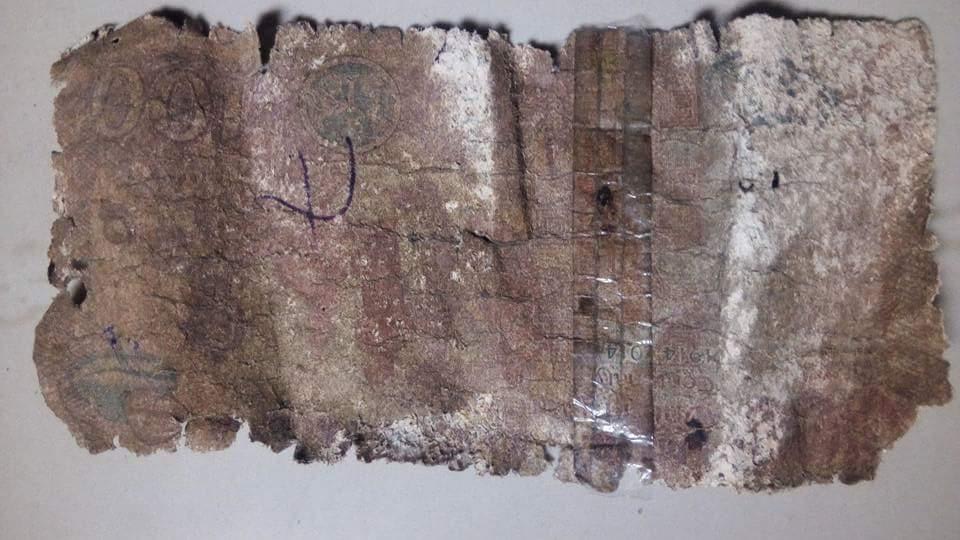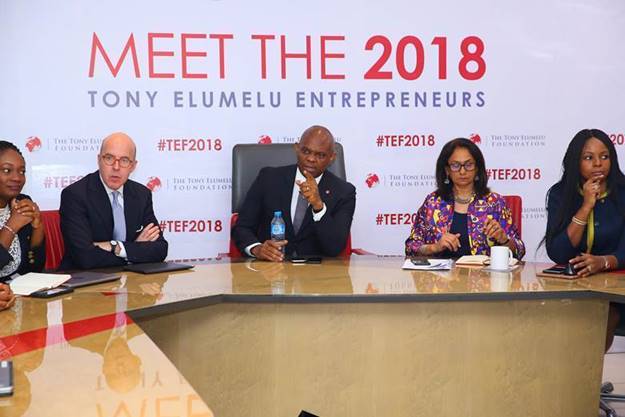Can CBN stop deceiving Nigerians, reach deal with banks on mutilated notes—Expert
A top banking expert working for one of the new generation banks (name with held), has called on the Central Bank of Nigeria (CBN) to stop deceiving Nigerians especially the informal sector operators in disbursing new lower naira denominations directly at market places.
Reacting to ongoing campaign by the apex bank to rid the country of dirty notes by direct disbursement at different cities across Nigeria, the banker described the drive as effort in futility, saying it cannot make the desired difference.
Since the second quarter of 2017, the CBN had been at loggerhead with commercial banks over the hiking of tariff it usually charge banks to exchange mutilated notes for new once to banks.
Business Hilights gathered that since the CBN hiked the rate, commercial banks have resorted to rejecting any mutilated lower naira notes from their customers who came with them, thus causing hiccups in day to day transactions mainly by operators in the informal sector including market men and women and even purchase of items on the streets.
According to the banker who spoke with our correspondent on the issue, he noted that “No amount of solo efforts by the CBN in self-disbursement can rid the country of dirty lower naira notes that are now embarrassing small holder businesses.”
“Banks have made it clear before the CBN that it can no longer pay the higher tariff it set on returning mutilated notes. What the banks want is simple; reduce the new tariff and we will continue because the cost is so much that no commercial bank can continue to foot that bill and still remain in retail banking business.
A new report released by Business Hilights Intelligence Unit (BHIU), the research arm of Business Hilights Publications on Monday, showed that “Business operators in the range of MSMEs, SMEs and other unclassified small holder businesses forfeit daily transactions averaging N1bn due to either rejection of payments or changes made with mutilated notes”.
“Out of these rejections, failed business transactions involving N100 notes make about 50 per cent, N200 notes-25 per cent, N50 notes-15 per cent while N10 and N5 notes make up the remaining 15 per cent.
Additional reports disclosed that some of the informal business operators find it hard to access new naira notes of lower denominations as the Automated Teller Machines (ATMs) only dispense higher notes including N1,000 and N500 notes.
Though efforts to reach any top official of the Central Bank of Nigeria (CBN) failed after the release of the report, a former Executive Director in one of the first generation banks described the ongoing direct exchange of new lower naira notes for mutilated ones by the apex bank as a defeatist strategy that cannot pass the test of time.
In an exclusive interview with Business Hilights in Lagos, the banking expert who pleaded anonymity averred that “There is no part of the world where a central bank directly involves itself in exchange of mutilated notes. The commercial banks are there and ready to do it better.
“But the CBN is now spending taxpayers money going up and down in a nation of over 200 million to distribute and exchange mutilated notes under the nose of commercial banks that have more branches and more are accessible to the informal sector operators’.
Continuing, he said “There is a missing link created by the apex bank in this matter and it is not yet ready to tell Nigerians the truth. But we know that there has been a way this matter is usually resolved before now and CBN cannot pretend not to be in the know.
“Am no more in service of any bank, but I know that it has never been the role of the CBN to share new currency on the street or market places. This is not done anywhere in the world and it is an embarrassment on the monetary policy of the bank.
“A lot of small scale businesses are suffering because of the problem, in fact some transactions are abruptly ended due to scarcity of lower denominations and the same CBN is preaching to grow SMEs when common tools for the sector to grow are not within reach.
He therefore called on the apex bank governor, Mr. Godwin Emefiele to reach a workable understanding with all commercial banks on how best to recalibrate rates it charges in sorting and exchanging mutilated notes.
“To me, looking at the enormity of the crisis, CBN can mandate commercial banks to suspend dispensing higher denominations at ATMs and even over the counter withdrawal to flood the system with new lower denominations at least within a time frame of one month or even three weeks. With this, the economy will be saturated with new notes while holders of dirty ones can deposit them as well.
It would be recalled that about nine months ago and specifically on Thursday, October 4, 2017, the House of Representatives urged the apex bank to immediately remove surcharge levied on commercial banks for the destruction of old mutilated naira notes in the country.
The House also directed that the CBN as a matter of statutory responsibility withdraw old and mutilated notes from circulation and re-issue new ones immediately.
The House then, equally directed the Committee on Banking and Currency to liaise with the CBN to harness the modalities for handling, returning and destroying damaged and mutilated notes and report back within eight weeks for further legislative action.
The House resolution followed a motion sponsored by Hon. Sergius Ogun, entitled, “calls for the removal of surcharge by the central bank of Nigeria on mutilated notes.”
The lawmaker who cited Section 20 of the CBN Act of 2007, which provides that “the currency Notes and Coins issued by the Central Bank of Nigeria (CBN) shall be the approved medium of exchange, and as a result, should be accepted for all transactions in Nigeria.”
He also noted that the widespread circulation of dirty, mutilated and worn out Notes contrary to the requirement that they are replaced by Commercial Banks when they are worn out or defaced as long as the Central Bank’s and Treasury’s serial number can still be seen on the Notes.
Ogun said in the past, “such notes were replaced by Commercial Banks, but now, the Banks routinely reject torn, defaced and mutilated Notes which customers bring for deposits.”
He further argued that despite the regulatory position of the CBN, it is apparently encouraging the outrageous and appalling practice of the Commercial Banks in rejecting the Notes.
According to him, the continued circulation of worn out, dirty and mutilated Notes calls for concern and also raises the need for close investigation and constant monitoring of the process of destruction of the Notes, adding that continued printing of new currency Notes without destroying mutilated Notes contributes to the inflationary trend in the economy.
However, rather listening to the voice of wisdom from virtually every quarter, only recently, the apex bank continued its direct new notes disbursement to traders in Lagos beginning with traders at the Tejuosho Ultra-modern Market, in Lagos.
The lower denominations approved by the management of CBN for the disbursement include N200, N100, N50, N20, N10 and N5 denominations to economic agents.’
This is in continuation of a series of direct disbursements to marketers, merchants, shopping malls, supermarkets, tollgates, among others, with a searchlight on the recipients to ensure compliance to rules.
The Director, Currency Operations Department, Mrs. Priscilla Eleje, at the weekend in Lagos, during the sensitisation programme at the market, said the traders at the market would be entitled to N5000 worth of the lower denominations weekly, which would be done through their bank accounts.
She said that the piecemeal disbursement was to guard against possible abuse or diversion and curtail the scarcity of the lower naira denominations due to hoarding and sale by unscrupulous people.









